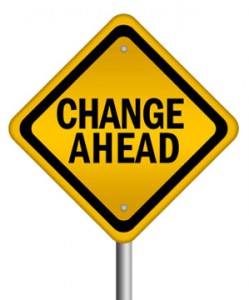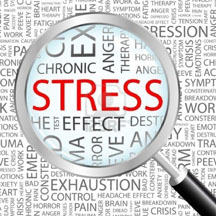 While the general public as a whole struggles with a variety of life stressors, law enforcement personnel often have more extreme stressors to combat. While local citizens might worry about their career, family, and finances on a regular basis, people who choose a career in law enforcement take on additional stressors. According to a 2014 study on police personnel and stress resilience training, these additional stressors may include psychological stressors connected with the mission, extended duty cycles, and exposure to horrific scenes of death and injury. (1)
While the general public as a whole struggles with a variety of life stressors, law enforcement personnel often have more extreme stressors to combat. While local citizens might worry about their career, family, and finances on a regular basis, people who choose a career in law enforcement take on additional stressors. According to a 2014 study on police personnel and stress resilience training, these additional stressors may include psychological stressors connected with the mission, extended duty cycles, and exposure to horrific scenes of death and injury. (1)
If you are a police officer, military personnel, or another form of law enforcement with an overabundance of stress, this article is for you. To help you battle not only criminals, but also stress- Here are a few tips for helping combat stress.
- Recognize. As with most things you must work to overcome, recognizing the problem is the first step. Take the time to assess your personal stress levels regularly. By keeping a close watch you can begin to sense trigger stressors before they build and get out of hand.
- Lead a healthy lifestyle. Though the hours of those who have careers in law enforcement can be demanding, it’s important to prioritize good health in your life. Do your best to maintain a regular sleeping schedule, eat healthy foods, and stay active.
- Take time away. Don’t be afraid to take a step away from the field whenever you need it. Small vacations away or extra time spent at home relaxing with loved ones can be just what the doctor ordered to help eliminate on-the-job stress.
- Prioritize. Law enforcement personnel have a rather important job, but never more important than your family or loved ones. Be sure to prioritize and bring things into perspective regularly to help ward off unneeded stress.
- Invest in a hobby. When you’re off the clock, choose to invest in a hobby. Weather its model cars, an instrument, or even sports by learning something new or engaging in an activity you enjoy you can naturally melt away stress and reenergize your body for another day on the job.
- Seek help. If you find yourself carrying a heavy weight of stress on your shoulders wherever you go, take the step toward seeking professional help. Confiding in a professional can help you receive the necessary help required to tackle your stress.
While everyone struggles with stress at one point in their life or another, people in law enforcement often have additional stressors. Combat unwanted stress on the job by learning to recognize stress in your life, leading a healthy lifestyle, taking time away, prioritizing, investing in a hobby, and of course- seeking help when you need it most. By doing so you can not only battle criminals but also stress.
Mark D. Parisi, Psy.D. & Associates, P.C. provides counseling, psychological testing, and psychotropic medication management in Mount Prospect and Chicago – serving surrounding Cook, Lake, DuPage, and Will Counties. They accept most insurance and offer extremely affordable sliding scale rates. Call (847) 909-9858 for a free, no-obligation telephone consultation
###
Sources:
- Police Department Personnel Stress Resilience Training: An Institutional Case Study, Potential law enforcement stressors, 2014, http://www.ncbi.nlm.nih.gov/pubmed/24808985


 It is easy for people to get wrapped up in various treatments, therapies, and medications when it comes to controlling mental illness but did you know simply engaging in hobbies you already love can help too?
It is easy for people to get wrapped up in various treatments, therapies, and medications when it comes to controlling mental illness but did you know simply engaging in hobbies you already love can help too? While you may think of forgetfulness and memory loss as challenges only the elderly face but if you are a young person, you may be disappointed to learn that memory loss can affect you too. Unfortunately, like most mental health problems memory has not prejudice. But there’s something you can do to help!
While you may think of forgetfulness and memory loss as challenges only the elderly face but if you are a young person, you may be disappointed to learn that memory loss can affect you too. Unfortunately, like most mental health problems memory has not prejudice. But there’s something you can do to help! Obesity is defined as a condition marked by excess accumulation of body fat, according to the American Psychological Association (1) and it affects a great portion of our population. In fact, as stated by the Centers for Disease Control and Prevention (CDC), more than one-third or 78.6 million U.S. adults are obese.
Obesity is defined as a condition marked by excess accumulation of body fat, according to the American Psychological Association (1) and it affects a great portion of our population. In fact, as stated by the Centers for Disease Control and Prevention (CDC), more than one-third or 78.6 million U.S. adults are obese. Unhealthy behavior can include bad habits such as smoking, drinking, poor diet choices, and lack of physical activity. These behaviors can cause greater health risks, especially in middle-aged people. Statistics show that over 20% of people smoke or drink (or both), over 40% of people are physically inactive, and over 30% of people are obese, according to the Centers for Disease Control (1).
Unhealthy behavior can include bad habits such as smoking, drinking, poor diet choices, and lack of physical activity. These behaviors can cause greater health risks, especially in middle-aged people. Statistics show that over 20% of people smoke or drink (or both), over 40% of people are physically inactive, and over 30% of people are obese, according to the Centers for Disease Control (1). Today, chronic stress- stress that interferes with your ability to function normally over an extended period- is becoming a public health crisis, according to the American Psychological Association (APA). (1) Caused by a variety of triggers such as money, work, the economy, job stability, personal health, and even family responsibilities, stress is wreaking havoc in the lives of most Americans these days. But what can we do to better cope?
Today, chronic stress- stress that interferes with your ability to function normally over an extended period- is becoming a public health crisis, according to the American Psychological Association (APA). (1) Caused by a variety of triggers such as money, work, the economy, job stability, personal health, and even family responsibilities, stress is wreaking havoc in the lives of most Americans these days. But what can we do to better cope? Families all around the world embrace animals such as cats, dogs, fish, and gerbils- just to name a few. They welcome these small or large critters into their home because they make them happy and offer companionship. They teach children responsibility and friendship. But did you know pets can also do the same for inmates?
Families all around the world embrace animals such as cats, dogs, fish, and gerbils- just to name a few. They welcome these small or large critters into their home because they make them happy and offer companionship. They teach children responsibility and friendship. But did you know pets can also do the same for inmates? While many of us are fully aware of how weather has the ability to affect our physical health, the majority of people today are completely ignorant of the affects weather can have on our mental health. Rain or shine, hot or cold, tornado or hurricane- weather can have a dominating effect on the way we feel and translate the world around us.
While many of us are fully aware of how weather has the ability to affect our physical health, the majority of people today are completely ignorant of the affects weather can have on our mental health. Rain or shine, hot or cold, tornado or hurricane- weather can have a dominating effect on the way we feel and translate the world around us. According to the key findings of the American Psychological Association (APA), there are 2 terrible truths about stress today (1). To help you better understand these truths and in return your own personal stress, here’s more.
According to the key findings of the American Psychological Association (APA), there are 2 terrible truths about stress today (1). To help you better understand these truths and in return your own personal stress, here’s more. It is common for people to have emotional highs and lows caused by everyday stress. However, there are some people who suffer from a severe mental illness known as bipolar disorder in which sudden shifts in mood and energy may be seen on a regular basis (1). These mood swings can negatively affect a person’s home life as well as his career if they are not controlled as well as possible. However, as with most mental illnesses, having a consistent routine can ease the symptoms and make the disorder easier to handle. There are 3 areas of consistency that should be met.
It is common for people to have emotional highs and lows caused by everyday stress. However, there are some people who suffer from a severe mental illness known as bipolar disorder in which sudden shifts in mood and energy may be seen on a regular basis (1). These mood swings can negatively affect a person’s home life as well as his career if they are not controlled as well as possible. However, as with most mental illnesses, having a consistent routine can ease the symptoms and make the disorder easier to handle. There are 3 areas of consistency that should be met.